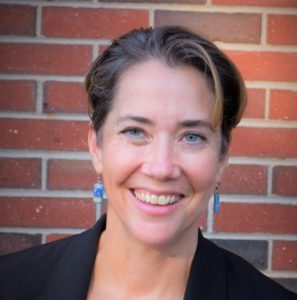About
rbouvier consulting is a company devoted to economic and statistical analysis, specializing in environmental and natural resource issues, climate change, and community economic development. We provide economic impact analysis, risk assessment, social return on investment reports, policy research, and natural resource valuation services to non-profit firms, private companies, municipalities, and government agencies.
 Rachel Bouvier is an environmental and natural resource economist. She works with businesses, government agencies, and non-profits to help integrate environmental risks and benefits into economic decisions. In addition to being the founder and president or rbouvier consulting, she holds the position of Associate Professor and Chair of Economics at the University of Southern Maine. Rachel earned her PhD in Economics from the University of Massachusetts at Amherst and her Master’s degree in Resource Economics and Community Development from the University of New Hampshire.
Rachel Bouvier is an environmental and natural resource economist. She works with businesses, government agencies, and non-profits to help integrate environmental risks and benefits into economic decisions. In addition to being the founder and president or rbouvier consulting, she holds the position of Associate Professor and Chair of Economics at the University of Southern Maine. Rachel earned her PhD in Economics from the University of Massachusetts at Amherst and her Master’s degree in Resource Economics and Community Development from the University of New Hampshire.
You can contact Rachel at rachel@rbouvierconsulting.com.
Rachel Bouvier’s CV may be viewed HERE.
Current and Past Projects
- Consulting Prouts Neck Conservancy on value of ecosystem services
- Assessed the Carrying Capacity of the Blue Hill Peninsula and the trends in migration to the area.
- Investigated the potential economic impact of climate change on Casco Bay (as part of a project with the Center for Business and Economic Research) for the Casco Bay Estuary Partnership.
- Conducted a visitor survey for the Friends of Fort Gorges, the results of which document the economic impact of the Fort on the greater Portland area.
- Performed a cost-effectiveness analysis with the Nature Conservancy (Maine chapter), comparing the costs of installing “stream smart” culverts with installing traditional culverts.
- Designed and implemented survey for the Unity Food Hub (Unity, Maine) to track its economic impact over time.
- Compared economic advantages and disadvantages of importing 100 MW of electricity from Hydro Quebec versus generating the same amount of electricity from “Maine-grown” windpower.
- Performed first ever needs assessment in Maine for low-income electricity consumers.
- Released “The Economic Value of a Restored Fishery on the Presumpscot River.”
- Edited and proofread a statistical guidance document for the National Park Service on estimating visitation.
- Analyzed data on household electronic waste taken to transfer stations to determine characteristics affecting voluntary take-back.*
- Analyzed over 4,000 decisions by Fish and Wildlife and National Marine Fisheries Services to assess implementation of Endangered Species Act provisions.*
- Analyzed data on mandatory “take back” program for household hazardous waste in San Luis Obispo County, California, to determine characteristics affecting efficacy of program.*
- Served as member of team overseeing states’ supervision of their drinking water systems, in compliance with the Safe Drinking Water Act.**
- Designed and implemented model for states to assess cost of compliance with Lead and Copper Rule.**
*While at the University of Southern Maine.
**While at the Cadmus Group, Durham, NH